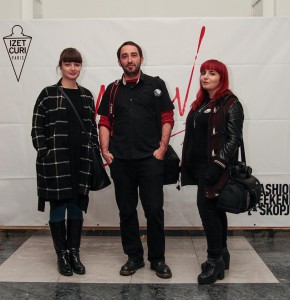
November 13, 2015, by Laura Estrop
Top tips to succeed as a freelance photographer
By Erina Bogoeva, graduated in 2014 with a MA in film, television and screen industries
For the past year I’ve been a freelance photographer (teaching and co-running a local photography website), producer/assistant director and translator (from English into my native Macedonian, and vice versa).
All these freelance positions make me very happy and I am not prepared to give up working as any of these yet. But freelance work can be tricky and in my experience it relies on a few key elements.
First and foremost: time managing
When organising a schedule outside of the usual nine-to-five work frame, time management is everything. When juggling a few areas of work, like I do, it’s more than that. In order to be successful in this, you have to use whatever means necessary to make it work. Some people work better with lists, others with reminders, some through a visualisation of the work arrangements. Find what functions for you and begin there. I, for example, have to write stuff down. No matter how many lists I put on my smartphone, I’m not going to remember anything if I don’t write it down on paper. And carry it with me at all times.
Shooting at Fujifilm’s Global Photo Walk 2015
Exposure means a lot, up to a point
When beginning work in the photography field, exposure really means a lot. Not only will clients easily find you, but you can use it as a learning curve. Taking up unpaid work as a photographer in a niche area, which is new to you will give you a chance to test yourself in that area. However, clients should be aware that you may not have (much) experience in that certain area. For example, even though I had been covering events for a year, I had never done weddings. So I accepted a job in which I felt comfortable to experiment. I knew the couple, so they wanted one of their friends to take professional pictures, even though they had a professional wedding photographer hired. The couple knew I had no experience, but wanted me to do it anyway, and I did. Those wedding photos got me three more weddings to cover, but I only did one more, because I realised that wedding photography was not my ‘cup of tea’.
However, when you’ve specialised in a field and know your trade, exposure comes with paying clients and finished projects. This takes me to my next point;
Covering Fashion Weekend Skopje for a fashion blog
It’s not always first-come, first served
There are instances when you will agree to do someone a favour in your line of work. Just to make one thing clear, by the point when you’re making a livelihood from what you do as a freelancer, taking on unpaid work it is not called exposure, it is called ‘doing someone a favour’. I still take pictures for my designer friends and organise performances for upcoming artists in exchange for drinks, or a small piece of their designs or collections, and that’s alright. Nevertheless, if offered a paid project sometimes the favours have to come second. If the paid work is time sensitive, my advice is to try and reschedule the favours if possible. However, if the promised project for a friend also have a tight deadline, then it is crucial to hold up to your promises. This again brings us back to the ability to manage your workload. Yet there will be situations in which it would not be physically possible to finish both projects on time.
Are you considering a career that isn’t the typical nine to five? Speak to our staff to see what options are available to you. If you would like to discover more about what it’s like to work as a freelance photographer, read Alex’s blog.
Next Post
What is a graduate scheme?No comments yet, fill out a comment to be the first



Leave a Reply